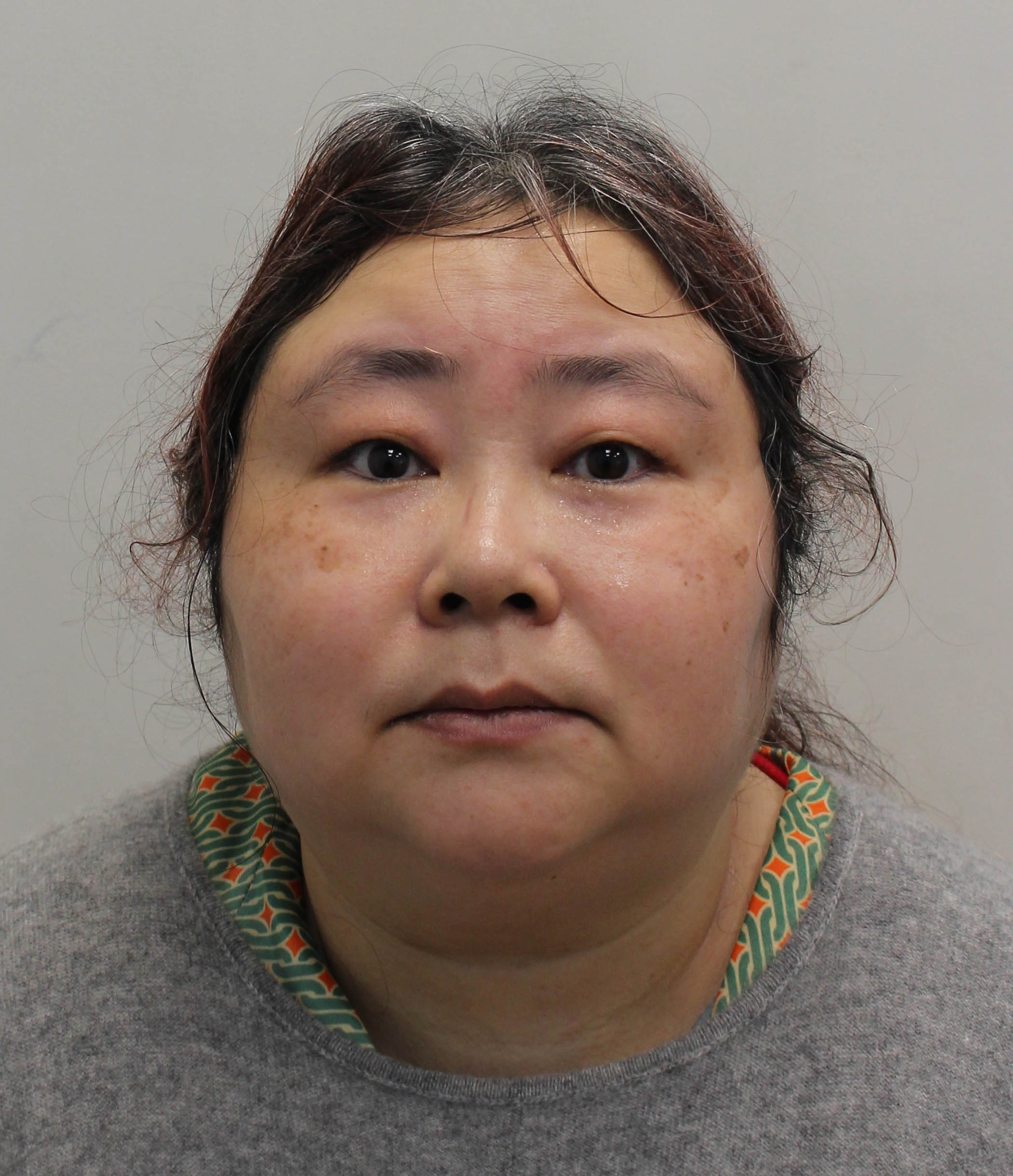Additional reporting by Phoebe Davis
Hanging on a wall in an art gallery in a Georgian townhouse on London’s Bedford Square is a self-portrait by Duan Jianyu, a Chinese contemporary artist. It is a deliberate homage to the work of the French neoclassical painter Jean-Auguste-Dominique Ingres, but rather than silky curtains and peacock feathers, Duan is surrounded by chicken nuggets and KFC cartons. It’s inspired, she tells me, by a recent trend in China, where young people seclude themselves, choosing to stay at home, order takeaways, and livestream their reclusive lives to online “fans”.
What has been revealed about the private life of Zhimin Qian, the Chinese woman sentenced this week to 11 years and eight months for money laundering, in what is believed to be the world’s largest cryptocurrency seizure, reminds me of Duan’s painting.
By the time the Metropolitan police raided Qian’s £5m rented Hampstead mansion in 2018, the international fugitive had become a recluse. Her live-in assistant, Jian Wen, who was convicted of money laundering last year and sentenced to six years, claimed Qian would spend up to 20 hours a day in bed on her laptop – gaming, shopping and exchanging bitcoin. When she was finally arrested, in 2024, at an Airbnb in York, Qian was found by police in bed.
She was living the life she is reported to have promised her victims: that they could “get rich while lying down”.
Back in China, Qian had been the charismatic leader of Tianjin Lantian Gerui, a company that claimed to mine bitcoin – promising returns of up to 300% – and that it was developing the next generation of smart technology health products. Its slogan: “Give three years of investment, and get three generations of wealth.”
The company had more than 128,000 Chinese investors by 2017. These weren’t seasoned professionals but retirees, teachers and state workers trying to make the most of whatever savings they’d carefully put aside.
The marketing was tailored to the company’s audience: pitching health products aimed at older people to exploit their immediate personal anxieties – and pitching the company as a solution to the threat posed by the US to tap into their existential ones. She is reported to have told prospective investors that Lantian Gerui would help China develop technologically and so better enable their country to deflect any kind of American attack, which she would say was inevitable. Instead, police say, she embezzled the money.

Zhimin Qian
Qian attracted thousands of fans to lectures, meetings and banquets in the ballrooms of Chinese hotels, and her victims have described the frenzied popularity of these promotional events. People were so electrified by her patriotism, they say, that audience members would battle their way to the front, their payment cards ready. “As soon as she opened her mouth, she captivated me,” Yang Fei, a 64-year-old retiree, told China’s Sanlian Lifeweek. “She talked nonstop for almost two hours, but she never once urged me to invest.” Yang Fei invested £20,000 on the spot.
By early 2017, the scheme was a storming success. During its last six months, more than £2bn poured in from investors – but in January that year it caught the attention of the Chinese authorities. Before she could be arrested, Qian packed up her laptop, which contained her bitcoin wallet, and crossed the border into Myanmar on a moped. She travelled to London using a false St Kitts and Nevis passport with a stolen name.
When she arrived in the UK in September, Qian hired Wen as her assistant, and rented a mansion on the edge of Hampstead Heath in north London. To explain her extreme wealth, the pair posed as international jewellery magnates – buying properties and travelling, although only to countries that didn’t have extradition treaties with China.
In China, Qian had been referred to by some investors as “the goddess of wealth”. In London, she wrote in her diary about her plans to buy a castle and to set up a bank – and detailed her intention to become the queen of Liberland, an unrecognised micronation on the border between Serbia and Croatia.
But in October 2018, the pair made an error. Wen attempted to buy a £24m property in Belsize Park using £850,000 converted from bitcoin, prompting the estate agent to report suspicious activity to the police. On 31 October police searched Qian’s Hampstead home, seizing more than £300,000 in cash and valuables – as well as a “treasure map”. That map led police to a safety deposit box with devices that were found to hold more than 60,000 bitcoin – the equivalent of £5bn.
Even so, it took several years for British police, in a rare collaboration with Chinese authorities, to discover the full scale of Qian’s wealth and her role in the money laundering scheme. She evaded authorities until February 2024, when a bitcoin transfer revealed that she was in York.
Last week, Qian pleaded guilty to illegally acquiring and possessing bitcoin.
The crucial question now is: what happens to the money?
That will be decided at a high court case that is ongoing. Since Qian arrived in the UK, the value of her bitcoin has increased by more than 20 times. Under British law, criminally obtained funds seized by the police would usually, after a conviction, be handed to the Home Office for the government to use. There have been rumours that the chancellor, Rachel Reeves, has her eyes on the money.
Stephen Parkinson, director of public prosecutions, is reported to have proposed setting up a compensation fund for the victims. According to the Financial Times, this would still allow HM Treasury to “retain much” of the fortune. It has also been reported that the original value of the claimants’ investment is about £640m. That leaves nearly £4.5bn to fight over.
But lawyers acting for Qian’s victims say the UK shouldn’t benefit from this money at all – that it was the property of their claimants, it was stolen, and should be returned to them at whatever it is now worth.
It puts the UK government in a complicated position. In January, Reeves said re-engaging with China could help boost the UK economy by £1bn and plans are being made for Prime Minister Keir Starmer to visit Beijing next year.
Steve Tsang, director of the SOAS China Institute, says that he thinks it is only fair victims receive their money back as well as whatever interest they would have received from a Chinese bank. He says that if HM Treasury wants to keep a cut, China’s government may also want to make a claim as Chinese police assisted the operation. Tsang suggests another option for the UK government is to to offer to donate the money remaining after the victims have been compensated, to set up a new independent charity in the UK to promote greater understanding of China, including offering scholarships to Chinese students to study in the UK.
But in China, some of Qian’s “investors” refuse to believe she has done anything wrong. They’re appealing to the Supreme People’s Court, the State Council, and other national institutions, to ask for an explanation as to why Lantian Gerui was closed.
One of the investors who spoke to Chinese media claimed the incredible gains Qian’s investments had made were proof she had been right all along. She was the “goddess of the crypto world”, the investor said. He’d “die for her” and he wished she’d return.
Like the young people referenced in Duan Jianyu’s paintings, alone in their messy bedrooms broadcasting to the world, members of an older generation in China felt part of something bigger by investing in Qian. Many of her victims have since lost their life savings, some their lives, marriages and families. Others still can’t face losing the sense of belonging her scheme gave.
Photographs by Metropolitan Police

